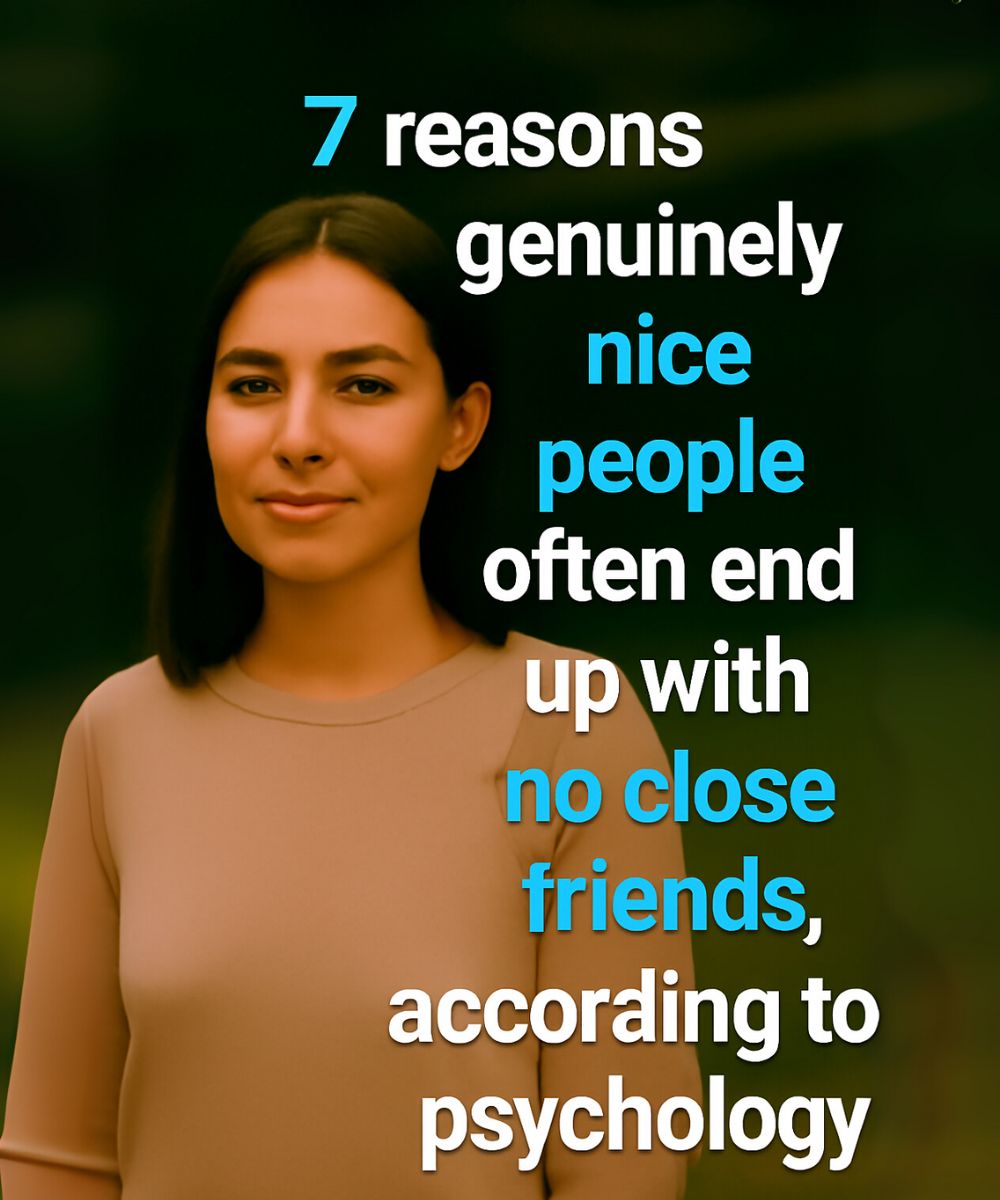Being genuinely kind is one of the most admirable qualities a person can possess. Those with a kind heart are often empathetic, generous, and quick to put others’ needs before their own. Yet, paradoxically, many of them struggle to form the close, meaningful friendships they deeply desire.
It’s a painful irony: the very traits that make someone compassionate can also create unseen barriers to building deep connections. Psychology helps explain why this happens, and understanding these patterns is the first step toward change.
Here are seven reasons why truly kind people often find themselves without close friends:
Difficulty setting boundaries
Kind people naturally want to help. They support others, say “yes” to requests, and rarely assert their own needs. But without clear boundaries, relationships can become unbalanced. Over time, unlimited generosity can lead to burnout and acquaintances who appreciate them but don’t truly value them.
Avoidance of conflict
Many nice individuals fear upsetting others, so they stay quiet instead of speaking their truth. Yet, lasting friendships require honesty, not constant harmony. By suppressing feelings, they prevent others from seeing their authentic selves, leaving relationships polite but shallow.
Attracting takers
Kindness can draw people who exploit it. “Takers” lean on givers, knowing they won’t resist. This creates one-sided relationships where the kind person gives continuously but receives little in return, leaving them emotionally exhausted and lonely.
Neglecting their own needs
Compassionate people ask, “How are you?” easily, but hesitate to say, “I need help.” True friendship requires mutual vulnerability. Without opening up, they block opportunities for others to care for them, keeping connections surface-level.
Overextending themselves
In trying to be there for everyone, kind people often spread themselves too thin—balancing family, coworkers, and social obligations. The consequence? They lack the time or energy to nurture the deeper, consistent bonds that real friendship requires.
Kindness mistaken for weakness
Continuous niceness can be misread as passivity or naivety. People may enjoy their company but fail to see them as strong, reliable, or influential, relegating them to “pleasant acquaintances” rather than trusted friends.
Hiding parts of themselves
Sometimes, kindness becomes a mask. By striving to be agreeable, they suppress less “acceptable” emotions—anger, sadness, quirks, even passions. Yet friendship flourishes on authenticity. By not revealing their full selves, they prevent others from forming truly deep connections.
Ultimately, being kind is a beautiful gift, but it comes with challenges. Recognizing these patterns allows kind-hearted individuals to protect themselves, set boundaries, and cultivate friendships that are both meaningful and reciprocal.
Developing closer friendships requires learning to balance generosity with self-care, speaking honestly even when uncomfortable, and letting others see the real person behind the kindness. It’s about giving, but also receiving.
Kind-hearted people must also embrace vulnerability—sharing their struggles, needs, and passions without fear. True friendship thrives when both sides feel seen, valued, and understood.
By acknowledging these challenges and taking intentional steps to address them, even the kindest individuals can create fulfilling, lasting connections.
Genuine kindness is one of the most admirable human traits, reflecting empathy, generosity, and a willingness to prioritize others.
Paradoxically, these same qualities often make it difficult for kind people to form close, meaningful friendships.
Many struggle with setting boundaries, offering support endlessly while neglecting their own needs.
Avoiding conflict is another hurdle; honesty is essential for deep bonds, yet fear of upsetting others keeps some relationships superficial.
Kind individuals often attract people who take advantage of their generosity, resulting in one-sided connections.
A reluctance to express personal needs prevents true mutual care and keeps relationships at a surface level.
Overcommitting to others can leave little energy for cultivating the deep friendships they desire.
Continuous kindness is sometimes misread as weakness, leaving kind people undervalued and misunderstood.
Hiding parts of themselves to maintain agreeableness prevents authentic connections from forming.
By recognizing these patterns, balancing generosity with self-care, and embracing vulnerability, kind-hearted individuals can build fulfilling, lasting friendships.
